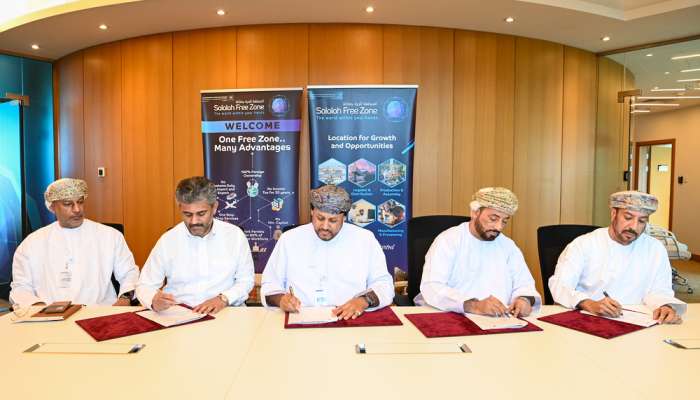
Salalah: A Memorandum of Understanding (MoU) was signed on Sunday at Salalah Free Zone between "Saifco," a food industry company operating in the zone, and the Dhofar Governorate branch of the Oman Agricultural Association.
The agreement is for the cultivation of sesame in the Al Najd area, as part of efforts to support food security and enhance national value chains.
This initiative is a joint cooperation programme between the Ministry of Agriculture, Fisheries, and Water Resources, the Public Authority for Special Economic Zones and Free Zones, and the Salalah Free Zone. It aims to connect local agricultural production with the food industry and achieve the objectives of Oman Vision 2040.
Under the agreement, Saifco commits to purchasing the sesame harvest from farmers in the first season, with plans for expansion in subsequent seasons. The project covers an area of 600 acres, benefiting 35 farmers with an estimated production of 300 tonnes in its first phase.
This partnership seeks to reduce reliance on sesame imports and boost self-sufficiency to meet the needs of local food industries, particularly for tahini and halwa. Sesame is a suitable crop for the desert environment of the Al Najd area and is known for its multiple uses in the food, cosmetic, and medicinal industries, in addition to its high nutritional value.
Dr. Ali Mohammed Tabuk, CEO of the Salalah Free Zone, affirmed that the initiative is part of the zone's efforts to enhance economic development by stimulating qualitative partnerships between investors and the local community. He added that the Salalah Free Zone aims to empower local production-based industries and support integrated value chains, thereby contributing to sustainable development in Dhofar Governorate and Oman as a whole.
The project serves as a practical model of cooperation among government entities, free zones, and the private sector. It embodies the role of the Salalah Free Zone in supporting national projects that contribute to the development of local industries, the empowerment of SMEs, and the enhancement of self-sufficiency and sustainable growth.